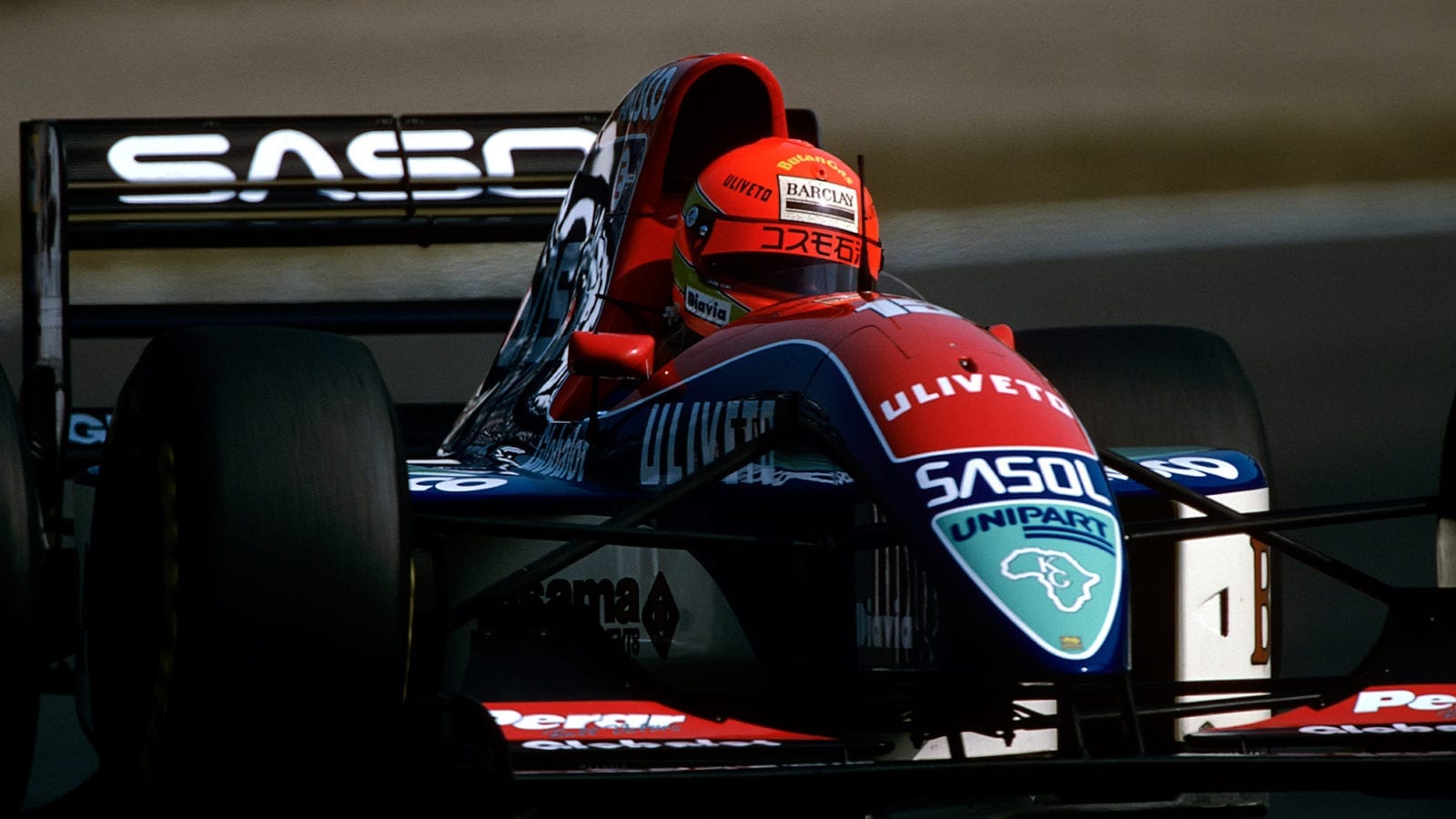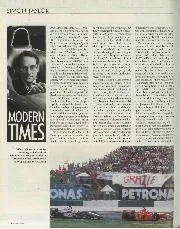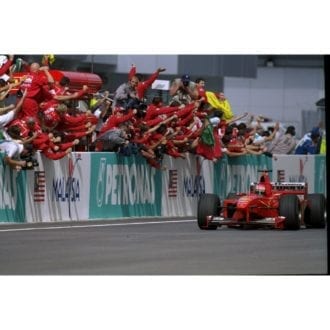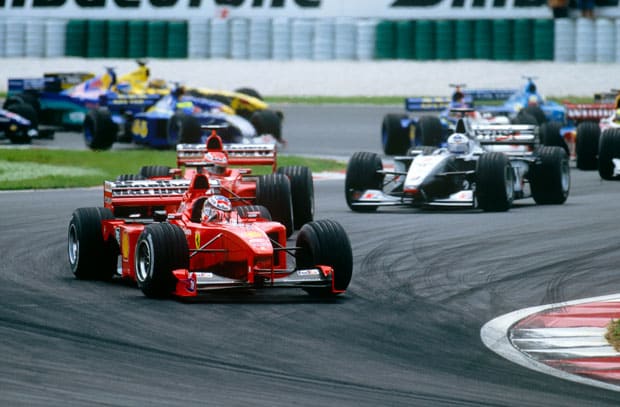For me the big negative about Irvine’s run in Japan was the cynical way that he took Derek Warwick off at the chicane, and the manner in which he subsequently suggested that the Briton had tried to squeeze him off the road just before. He was hauled before the stewards for pushing the Footwork off the road but, as we have come to expect, no further action was taken. Later, however, Senna had launched a diatribe against backmarkers in his victory conference, and you didn’t need genius IQ to know to whom he was referring.
What happened in the race was influenced by several factors, for this was the period when parts of the track were drying and parts were still very wet, such as the S Curves behind the pits. Hill had just stopped for slicks, while Senna and Irvine were still on wets. Overall, the equation balanced out over the lap, but having lapped Irvine on the 34th tour, Senna was having trouble getting by Hill. Unusually for him, he appeared to be rather less forceful than we have come to expect. To Irvine the situation was simple: the former World Champion wasn’t going fast enough.
“He was in the wrong place at the wrong time, and he was getting in my way…
When the opportunity came he repassed the McLaren, and that, one suspects, is what really got Senna mad. A new boy in a Jordan overtaking him!
“Suddenly,” he related in the conference, “I got disturbed by another car again. The guy behind me came like a lunatic. If he is a backmarker he should respect someone who is one lap in front. It was dangerous, because those guys were going to hit each other and that could have cost me something.”
It was an interesting choice of words, with the selfishness all too evident. “They could have hit each other, and that could have cost me something.”
In fact, Hill and Irvine rubbed wheels a couple of times, but Damon had no complaints about his rival’s tactics afterwards. Nor did Schumacher, whom Irvine had passed round the outside in the first corner during the start!
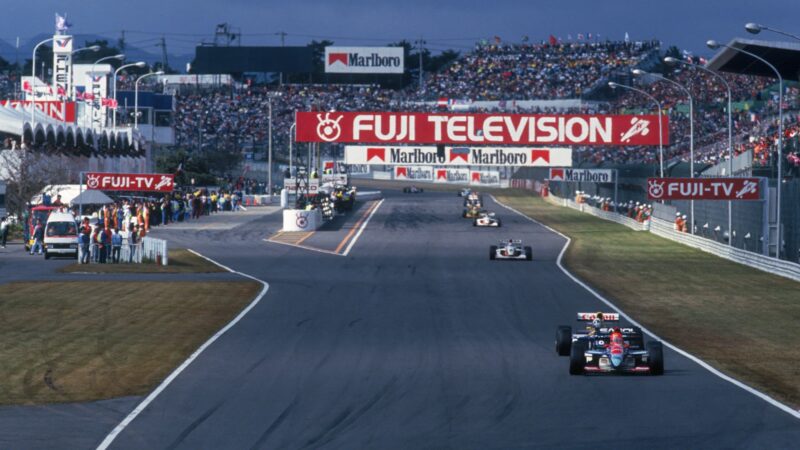
Irvine ahead of Hill: the pair rubbed wheels but neither had any complaints
Pascal Rondeau/Getty Images
Later still, Senna paid his now famous visit to the Jordan office in the paddock. It is said that Gerhard Berger, ever mischievous, had communicated to him the nature of the comments Irvine was making about Ayrton’s criticism, and that was sufficient to light the blue touch paper. I was next door at Lotus when the Brazilian and his entourage strode down to Jordan, and watching from the front window was just too good an opportunity to miss.
Initially, Senna didn’t even know what Irvine looked like, and at one stage accosted Autosport’s Japanese correspondent Adam Cooper, who set him right. Presciently, Adam also switched on his tape recorder. . .
“He thinks he’s a smart arse. Well, he did something to me the other day, so I got him back today, good and proper”
Irvine sat languidly on a table and raised his hand. “Here,” he indicated to Senna. Ayrton then began another tirade that lasted a good five minutes, wagging a finger threateningly in Irvine’s face. Now Eddie is not the greatest respecter of anything, and earlier on had dismissed Senna’s reported ire. Now he had the full benefit of that anger face-to-face, and as Senna’s digit worked overtime he sat with a ‘have-you-finished-yet?’ expression on his face.
Making liberal use of the F-word, the former World Champion made it rather clear that he doesn’t care to be overtaken, and that once he has lapped somebody he likes to make it stick. Irvine, predictably, refused to be bowed by any of this bluster.
After the race, he had remarked: “If he was the race leader, I shouldn’t have been able to pass him. That’s his problem. It doesn’t affect me. It’s water off a duck’s back to me. He thinks he’s a smart arse. Well, he did something to me the other day, so I got him back today, good and proper . . .
“I don’t see what his problem is. I didn’t put him at risk, I didn’t touch him.”
